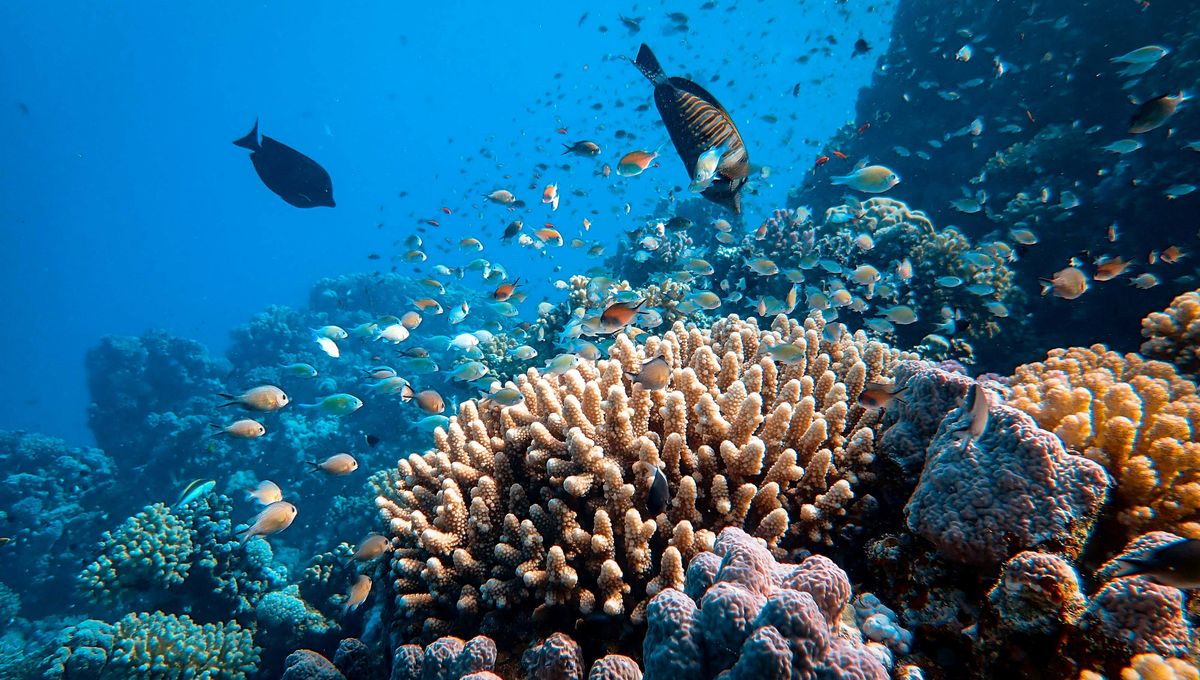
Earth has reached its first climate tipping point, according to an official new update, marking a “new reality” for our natural world. The tipping point concerns the world’s warm-water coral reefs, which have recently been facing repeated, unprecedented die-offs due to relentlessly rising ocean temperatures.
With global temperatures already about 1.4°C (2.52°F) above pre-industrial levels, coral reefs are crossing their heat threshold of around 1.2°C (2.16°F; range 1-1.5°C or 1.8-2.7°F). Even if warming is limited to 1.5°C, there is an over 99 percent chance that warm-water reefs will still pass this point of no return, according to the second Global Tipping Points Report.
This means that small refuges of warm-water corals will (hopefully) remain, but thriving, healthy reefs are likely to soon become a thing of the past. Their only hope is to return Earth’s temperature to just 1°C above pre-industrial levels, which would require a Herculean global effort.
“The findings of this report are incredibly alarming. That warm-water coral reefs are passing their thermal tipping point is a tragedy for nature and the people that rely on them for food and income,” Dr Mike Barrett, chief scientific advisor at WWF-UK and co-author of the report, said in a statement.
The Global Tipping Points Report is a massive international effort involving over 160 scientists from 87 institutions in 23 countries. To highlight how Earth’s natural systems are changing at a dizzying rate, their climate scientists and researchers have outlined several “tipping points,” milestones that signify points of grave change.
This is because the impacts of climate change aren’t always linear. Instead, they can accelerate exponentially once critical thresholds are crossed, triggering self-perpetuating feedback loops that make the damage effectively irreversible on human timescales.
The tipping points include catastrophic shifts to a variety of different natural systems, including the Amazon turning to grassland, the melting of polar ice sheets, and the potential collapse of the Atlantic Meridional Overturning Circulation.
It has always been known that corals were especially sensitive to our changing planet, making them likely candidates for the first “tipping point” to be breached. However, the researchers warn that many other Earth systems are on the brink too.
“This grim situation must be a wake-up call that unless we act decisively now, we will also lose the Amazon rainforest, the ice sheets and vital ocean currents. In that scenario we would be looking at a truly catastrophic outcome for all humanity,” added Dr Barrett.
The latest Global Tipping Points Report is being released ahead of COP30 – the UN’s annual climate summit taking place this November in Belém, Brazil – where governments, NGOs, trade unions, businesses, and other groups will meet to negotiate global climate policies.
The report’s authors have collaborated with Brazil’s COP30 Presidency on the “Action Agenda,” using these tipping points to communicate the risks of climate change in a vivid and actionable way.
“Current policy thinking doesn’t usually take tipping points into account,” explained Dr Manjana Milkoreit, from the University of Oslo. “Tipping points present distinct governance challenges compared to other aspects of climate change or environmental decline, requiring both governance innovations and reforms of existing institutions.”
“Preventing tipping points requires ‘frontloaded’ mitigation pathways that minimize peak global temperature, the duration of the overshoot period above 1.5°C, and the return time below 1.5°C. Sustainable carbon dioxide removal approaches need to be rapidly scaled up to achieve this,” Dr Milkoreit added.
Source Link: Earth Breaches Its First Climate Tipping Point: We're Moving Into A World Without Coral Reefs